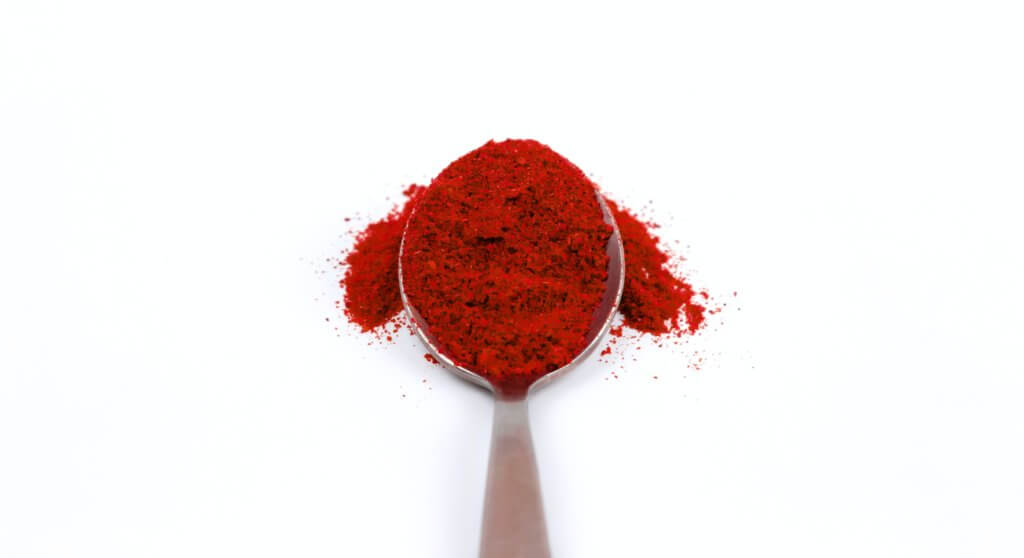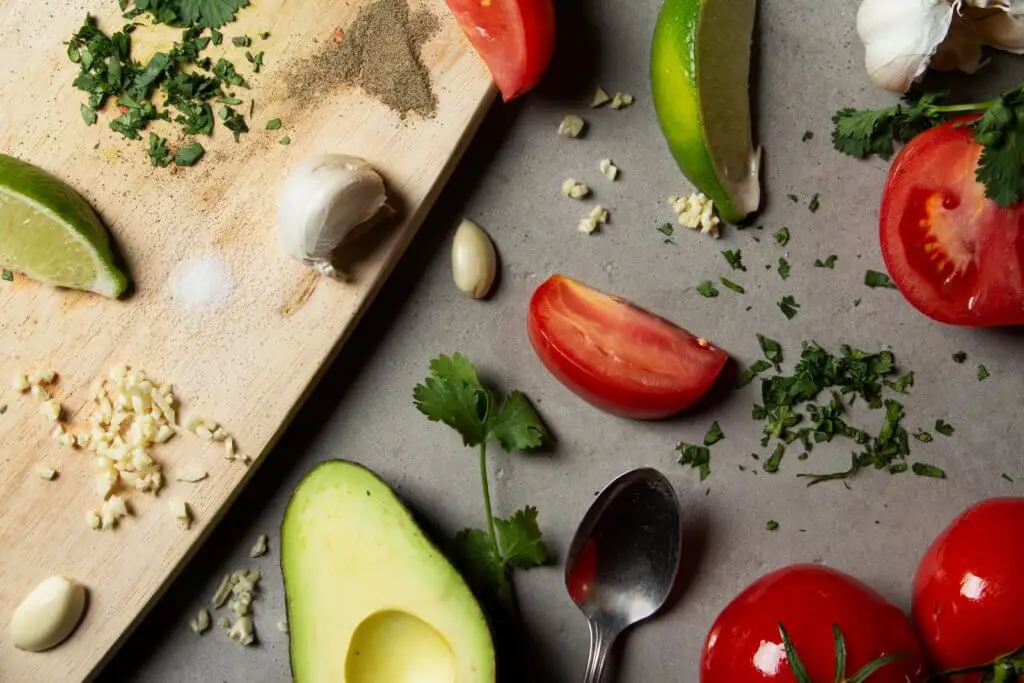Dogs love to eat. In fact, one could argue that dogs are scavengers. They’ll eat everything they get their paws on. This is why one of the top questions every dog parent has is what a dog can snack on. Some of the common foods that owners are curious about are spices. Is paprika bad for dogs, and what spices can dogs eat?
Dogs are similar to their human owners. One of the things most of us share is our love for food. Not just any food – we love tasty food enhanced with flavors.
We use spices in most of our meals. Any dog owner knows that a lunch can’t pass without our beloved four-legged friend giving us the puppy eyes.
A lot of human food, however, can be harmful to our pets. As one of the most commonly used spices, we have to wonder, is paprika bad for dogs?
Is Paprika Bad for Dogs?

Paprika is a spice that comes in various colors, including green, red, and yellow. It is a commonly eaten spice, and you can eat it fresh or use it in multiple dishes.
For humans, it is a really healthy snack. However, is paprika bad for dogs, and can you give it to your pet?
Even though paprika isn’t toxic for dogs like some other foods, you really shouldn’t give it to your canine friend. Paprika won’t cause severe harm and eating it won’t end up fatally.
If you notice your dog eating food with it, don’t worry, nothing terrible will happen. However, paprika can upset your dog’s stomach and cause diarrhea.
If your pup is known for having gastrointestinal problems, avoid feeding him any meals with paprika in it.
Not to mention that paprika has a dusty texture, which can quickly get in the air. This can end up with your dog breathing it in, or it can get into his eyes.
This can cause both breathing issues, as well as sight and eye problems.
Can Paprika Be Beneficial?

Now you know whether or not is paprika bad for dogs. Are there some benefits to dogs eating paprika, though?
Paprika is made by grinding capsicum peppers, and it has a micronutrient content. It’s full of carotenoids, such as zeaxanthin and lutein, which are beneficial to eyesight.
Eating carotenoids can help a dog’s vision. Another reason why paprika is good for canine eyes is its high Vitamin A content.
Vitamin A is an essential vitamin that helps develop eye cells, and it can improve night vision. Another vitamin that paprika is rich in is Vitamin E, which is good for the skin.
If your dog has itchy skin or dandruff, supplement him with Vitamin E. Paprika also has many antioxidants, which are great for overall health.
However, this still doesn’t mean that dogs should be fed paprika. Other food are much richer in all of these healthy nutrients that are meant for dogs.
Not only that, but the benefits are not worth risking harming your dog’s stomach. If you insist on feeding your dog natural food, try giving him safer plant food, such as carrots.
Can Paprika Cause Your Dog Serious Harm?
Paprika can cause serious-looking symptoms such as vomiting and diarrhea. If your dog eats it frequently, those symptoms might worsen, and he may develop gastritis.
However, no, your dog won’t die from eating paprika. Even if you notice him eating from the spice jar, there is no need to rush to the vet. You could test your dog for allergies.
Paprika will cause discomfort and probably temporary pain to your dog’s stomach, but this is rarely a severe problem. If you do notice your dog vomiting for a prolonged period of time, you should consult a veterinarian.
There is a chance your dog has gastritis or that something else is irritating him.
Can Dogs Eat Bell Pepper?

As we’ve already mentioned, paprika is made from the pepper. This probably makes you wonder whether or not eating bell pepper can irritate your dog’s stomach.
Believe it or not, bell pepper is perfectly healthy for your dog! Peppers can even be used as a healthy snack if your dog loves them.
Peppers contain a high amount of vitamins A, C, E, and B6. They are also rich in lutein and beta-carotene. All of these are important for your dog’s immune system and are necessary nutrition for him.
And if you wondered whether the color of bell pepper is essential – not too much. Red bell pepper is the most abundant in vitamins, so it is the healthiest of them all.
It is the most nutritious one, and this makes it the best choice if you only have to choose one. However, green and yellow peppers are also perfectly healthy and safe to eat.
Keep in mind that bell pepper should be slowly introduced to your dog’s diet. Also, the amount of pepper they should eat depends on the dog’s size.
Don’t go overboard, as eating too much pepper can cause diarrhea and vomiting. Some canines won’t even like pepper, so don’t even try it! Also, remove any seed and stems.
What Other Spices are Harmful for Dogs?

Paprika isn’t the only food that can disturb your dog’s stomach. In fact, if you share your food with your pet (we don’t recommend that!), you should avoid spices overall.
Some of the most common, daily used nutrients, can damage your canine’s health. Here are spices you should avoid giving to your dogs:
Salt
Believe it or not, too much salt can harm your pet. This common spice can cause serious health issues if fed daily.
If your dog eats too much salty food, he might experience excessive urination, thirst and dehydration. Other symptoms of a salt overdose include diarrhea, vomiting, fever, and even seizures.
Not only that, but too much salt may end up to your dog having sodium ion poisoning. This is why you should avoid giving your dog snacks, such as popcorn or chips.
If you are looking for a safer alternative, use Celtic sea salt, as it isn’t as damaging.
Garlic, Onion, and Chives
Your dog really shouldn’t eat garlic, onion, and chives. All of these spices contain a lot of disulfides and sulfoxides.
These sulfurs can cause damage to red blood cells, which carry oxygen to tissues. Once too many red blood cells are damaged, your dog may develop anemia.
Not only that, but these spices can cause more common symptoms, such as diarrhea and vomiting. Onions, garlic and chives also cause various gastrointestinal irritation and problems.
Flaxseed
Flaxseed, similarly to paprika, isn’t really toxic for dogs, but it can cause gastrointestinal problems. If eaten by accident in a small dosage, your dog likely won’t experience any discomfort.
However, flaxseed can cause bowel irritation, diarrhea, and vomiting.
Nutmeg and Cocoa Powder
These two are some of the more dangerous spices that you should never feed to your dogs. Unlike previously mentioned spices, these two can cause severe health issues, even death.
Cocoa powder can cause tremors and seizures. You should never feed your dog human chocolate!
On the other side, Nutmeg causes abdominal pain, severe vomiting, and even the excitement of a central nervous system. This can lead to drowsiness.
Eating too much of any of these spices can also result in your beloved pet’s death.
Are There Safe Spices for Dogs?

Just because your dogs have different digestion, that doesn’t mean they shouldn’t enjoy a tasty meal. A lot of spices are safe for dogs, and some can even be beneficial! Here are just a few of them:
Parsley
Parsley is an herb commonly used in soups and other human meals. Parsley is rich in minerals, vitamins, as well as healthy fibers.
These can improve the organs’ function and help detox the entire canine organism.
Basil
Basil is a herb easily recognized by its relaxing scent. This is pleasant not only for humans but dogs as well. It’s a perfect antioxidant and ensures your four-legged friend’s overall health.
Not only that, but basil can help relieve pain, especially that caused by arthritis. It’s also recommended for its antimicrobial and antivirus properties.
Turmeric
Turmeric helps prevent dog’s heart problems. It also serves as a metabolism booster and can help your dog lose weight. Not only that, but it even reduces the risk of anemia and most types of cancer.

Bottom Line
Well, it isn’t too bad, but it should still be avoided. Even if your dog seemingly doesn’t experience any issues after consuming it, it can harm the long run.
The same goes for most other spices or food that contain them, except those herb-based, that can even be great for a dog’s health. If your dog has eaten a small amount of food containing paprika, don’t worry. Just don’t make a habit out of it.
